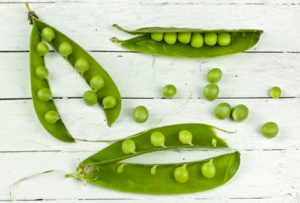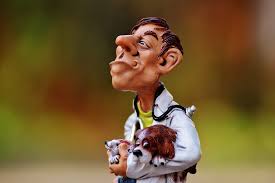 Peas in dog food. Good or Bad? I’m sure you remember as a child when your mother asked you over and over again to eat your vegetables. Do you do the same with your furry pet at home? I’ve narrowed this topic of vegetables down to one, the pea. Should your dog be eating peas, and do they provide any nutritional value?
Peas in dog food. Good or Bad? I’m sure you remember as a child when your mother asked you over and over again to eat your vegetables. Do you do the same with your furry pet at home? I’ve narrowed this topic of vegetables down to one, the pea. Should your dog be eating peas, and do they provide any nutritional value?
Peas In Dog Products… The Good And Bad
Peas are one of the more common ingredients found in dog food, and it can bring multiple benefits to man’s best friend. While fruits and vegetables are not as important to dogs as they are to humans, they can still be given as treats and as part of a healthy and varied diet.
Peas are one of those vegetables that you can easily share with your puppy. You can give your dog fresh, frozen or thawed peas. But definitely avoid feeding them with canned peas, as they are loaded with sodium, which can be harmful to dogs.
Dogs may eat pea pods too, just be careful that they won’t get stuck in their throat. Some dogs may not tolerate peas, so watch out for signs like diarrhea or vomiting.
Nutrients in Peas
Fresh peas can be one of the healthiest snacks that you can give to your puppy. They  contain vitamin A and vitamin K, as well as the B vitamins. Peas also have minerals like iron, zinc, potassium and magnesium.
contain vitamin A and vitamin K, as well as the B vitamins. Peas also have minerals like iron, zinc, potassium and magnesium.
But wait, there’s more! They are a great source of protein and fiber, and they also contain lutein. This antioxidant is good for the eyes, the skin and the heart of your best friend.
Cons of Peas in Dog Food
While feeding your dog some occasional fresh peas will only be beneficial, giving him dog food that contains peas every single day, may cause harm on the long term.
Peas started to be included in dog food as the “answer ingredient” for people who were demanding grain free dog meals. Many products nowadays have big concentrations of pea proteins, which also contain lectins.
 Lectins are sticky molecules that bind to sugars. But they might also stick to the lining of the small intestines, to joints, the thyroid or the pancreas. The immune system will detect them and will send antibodies to attack these molecules along with the tissue they are attached to.
Lectins are sticky molecules that bind to sugars. But they might also stick to the lining of the small intestines, to joints, the thyroid or the pancreas. The immune system will detect them and will send antibodies to attack these molecules along with the tissue they are attached to.
This inflammatory process may lead to various diseases, including diabetes, cardiovascular disease, arthritis or thyroid issues. When attaching to the intestinal villi, they can also decrease the ability of the body to absorb nutrients and harm the gut microflora. These are beneficial bacteria that live inside the gut. If they are affected, the dog may suffer of the leaky gut syndrome.
To Pea, Or Not To Pea
I know, pretty bad, huh? Whether you decide to include peas in your dog’s diet is certainly a personal decision and one that should be discussed with your vet or animal nutritionist.
A product that I recently researched and one that appears to be nutritional and does contain peas as one of the ingredients can be found HERE. As mentioned earlier, should you have any questions, always consult your veterinarian to avoid any doubt.
One such recipe that contains the green pea is one that you can find by clicking HERE. This is a product that I have researched in a previous post.
Conclusion

Feeding your dog some occasional fresh or frozen peas can bring extra vitamins, minerals and antioxidants. But dogs were not made to consume peas every single day, so be careful with peas in dog food. Those lectins, consumed in access, can be dangerous.
Carefully read the label and avoid foods that are high in peas. But also avoid dog food high in wheat, beans, soy or corn, as these are also full of lectins and may cause the above mentioned health issues. In moderation is key here.
My objective in writing this article is to give you information that I have gathered through my own research. I am a dog lover, and someone who has a real passion in keeping our four-legged companions happy and healthy.
Always consult your veterinarian if you should have questions regarding a specific ingredient that you may have some questions about. Hopefully, the information has been helpful to you in some way, and gives you additional information regarding peas in dog food recipes.
Disclaimer
For those unfamiliar with dog food grain-free recipes, there has and is a controversy taking place as I write this article. The FDA has made public that it has launched an investigation between a possible connection between the grain-free diet and heart disease within dogs. For further information, the American Kennel Club has provided further details. Click here.
0 Comments